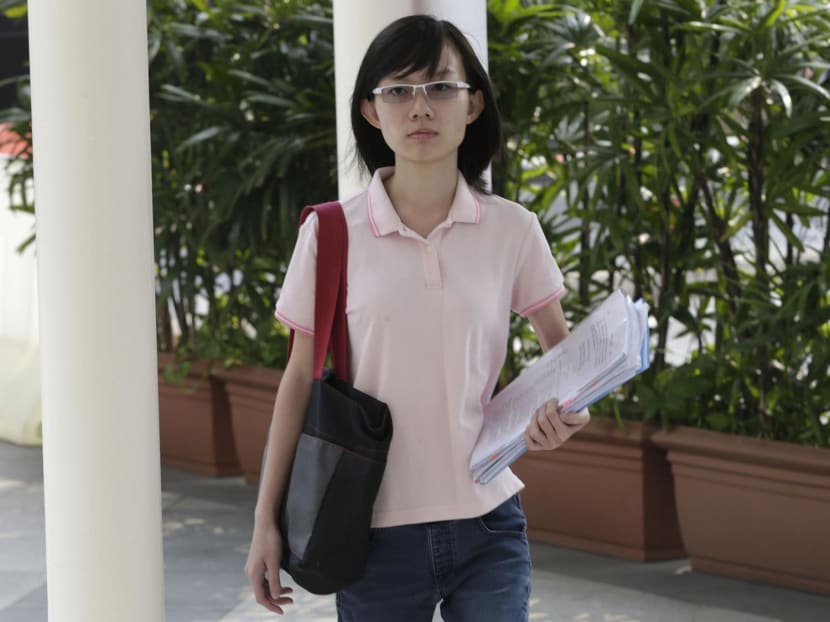High Court dismisses bid by activist Han Hui Hui and others to declare vaccine-related measures as unlawful, irrational

- Several applications to quash the Government's vaccine-related regulations were dismissed by the High Court
- One application asked the court to declare some of the rules as unlawful and irrational
- The applications were filed by political activist Han Hui Hui and five others, represented by lawyer and opposition party leader Lim Tean
- The court ruled that the Government had acted in good faith based on objective evidence
SINGAPORE — The High Court has dismissed several applications brought by political activist Han Hui Hui and five others to quash vaccine-related regulations rolled out by the Government during the Covid-19 pandemic, saying that their applications had no merit.
The applicants had also applied for the court to declare that the advisory and the announcement were unlawful or irrational, or both.
They had sought a declaration as well that they have a “substantive legitimate expectation” that their employment should not be at risk because of their vaccination status and that the Government should bear the costs of their Covid-19 medical treatment.
The applicants had pointed to public health data, among other things, which they claimed showed that the people who were not vaccinated against Covid-19 were not causing a disproportionate strain on healthcare resources and that the data refutes the Government’s assertion that a fully vaccinated person was less likely to die or fall seriously ill from Covid-19.
In his judgement published on Thursday (June 16), Justice Dedar Singh Gill rejected the argument, after lawyers for the Attorney-General’s Chambers (AGC) argued that the statistics presented were skewed and misrepresented.
"I find that the multi-ministry task force and the Ministry of Health (MOH) have acted in good faith by relying on proper reasons, which have been backed by objective evidence, " the judge wrote in the 82-page judgement.
“I find that the multi-ministry task force and Ministry of Health have acted in good faith by relying on proper reasons, which have been backed by objective evidence.Justice Dedar Singh Gill”
"It is clear that the multi-ministry task force and MOH considered independent clinical studies, which establish the efficacy of Covid-19 vaccines and weighed the situation in favour of incentivising vaccination, in order to minimise risks to the society at large."
The applications pertained to two aspects of the Government’s response to the Covid-19.
The first was an advisory on Oct 23 last year on the work arrangements employers can make for unvaccinated workers, including sacking them as a last resort, jointly issued to employers by the Ministry of Manpower, Singapore National Employers Federation and the National Trade Unions Congress.
The second was an MOH announcement on Nov 8 last year that patients unvaccinated by choice must foot their own medical bills.
Besides Ms Han, the other five applicants named in court documents were: Sng Su Hui, Yeo Sheau Yuen, Lim Beng Kwang, Lawrence Simon Anthony and Muhammad Faizal Mustafa.
They were represented by lawyer and opposition party leader Lim Tean.
Their application to quash the “directive” set out to employers in the Oct 23 advisory was rejected by Justice Gill from the outset.
He ruled that the advisory was not a policy directive and did not carry legal effect. It had merely reiterated the Government’s announcement on such measures, he added.
Therefore, he did not consider the advisory to be susceptible to judicial review and dismissed the application.
As for the statistics that they presented, the applicants claimed that their own calculations, based on MOH’s public health data on the pandemic, showed that there were more vaccinated people who died due to Covid-19 as of Dec 5 last year compared to unvaccinated people.
They also claimed that there were more fully vaccinated Covid-19 patients in hospital who were critically ill as of Dec 6 last year and that data also showed that on April 10 this year, nobody in the intensive care unit aged 70 and above was not fully vaccinated.
Given these statistics, the applicants argued that there were no reasonable or rational grounds for the advisory and the announcement to be issued and that they had suffered detriment as a result of the vaccine-related regulations.
The AGC rejected their conclusions, pointing out errors in their calculations.
Even if the court accepted their calculations, the statistics considered only the raw numbers of deceased or critically ill patients and did not take account of the fact that there were many more fully vaccinated people in the population than unvaccinated people, AGC added.
Dr Derrick Heng Mok Kwee, deputy director of medical services (public health group) at MOH, reproduced data to the court showing that there was consistently higher incidence rates for unvaccinated people to die or fall critically ill from Covid-19 than fully vaccinated people.
The AGC also pointed out that the applicants had chosen to single out a single day where there were no critically ill Covid-19 patients in hospital for those aged 70 and above, based on a seven-day moving average.
Justice Gill noted that it would have been more accurate to compare such cases in the entire fully vaccinated population and the entire non-fully vaccinated population, which would show that fully vaccinated people were less likely to fall critically ill.
He also said that data from a longer period — Feb 9 to April 3 this year — showed that the number of critically ill cases for every 100,000 fully vaccinated people aged 70 and above was lower than that of non-fully vaccinated people most of the time.
The judge stated that he would hear submissions separately on the issue of who pays the legal costs in the case. It was not immediately clear if this has been settled yet.











